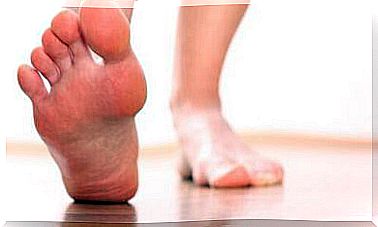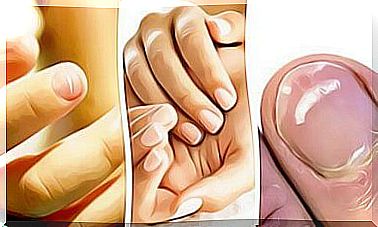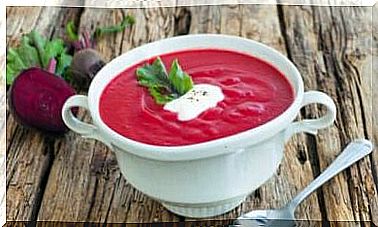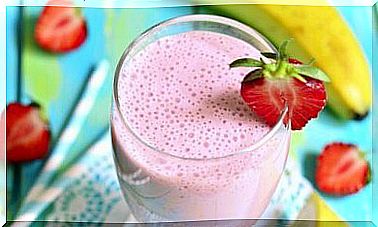Irritable Bowel Syndrome: 5 Teas To Help Relieve Symptoms

Irritable bowel syndrome is a common disease with symptoms more and more people struggling with. Its most common causes are primarily bad eating habits and a sedentary lifestyle. Both of these factors strongly influence the development of this ailment. Irritable bowel syndrome affects people of all ages, most often adolescents and young people. Symptoms may be sporadic or may be caused by external stimuli. They can also become chronic and significantly reduce the quality of life.
Fortunately, there are natural remedies like teas. Due to their properties, they bring relief and do not cause undesirable side effects.
Irritable bowel syndrome – tea to relieve symptoms
1. Sage infusion
Sage is an astringent and anti-inflammatory plant that helps soothe symptoms caused by irritable bowel syndrome.
Its ingredients have a positive effect on the intestinal flora, therefore sage prevents constipation and inflammation of the digestive system.

Ingredients
- 1 tablespoon of dried sage leaves
- 1 cup of water
A method of preparing
- Pour the sage leaves with boiling water and steep, covered, for 10-15 minutes.
- When it has cooled down a little, strain the leaves and drink the infusion.
When to drink
- Drink two cups of infusion a day, preferably one in the morning and one in the evening.
2. Fennel seed tea
Fennel seeds are known for their anti-inflammatory and digestive properties. Thanks to this combination, they bring relief to irritated intestines.
Fennel seed tea will significantly reduce flatulence. In addition, it will help you get rid of gases and toxins accumulated in the intestines.
Ingredients
- 1 teaspoon of fennel seeds
- 1 cup of water
A method of preparing
- Bring water to a boil. When it boils, remove from heat and add seeds.
- Let it infuse for 15 minutes, then strain.
When to drink
- Drink a cup of tea at breakfast and before larger meals.
3. Anise tea
Anise tea has an anti-inflammatory and soothing effect. It reduces stomach cramps and reduces gas in the intestines. What’s more, thanks to its properties, it reduces intestinal irritation, while protecting good bacterial cultures.

Ingredients
- 1 tablespoon of anise
- 1 cup of water
A method of preparing
- Add anise to boiling water and leave, covered, for 10 minutes.
- Then strain and discard leftover anise.
When to drink
- Drink a cup of this tea before every major meal.
4. Mint tea
Mint is a plant commonly used to treat digestive problems related to the gut because it has antispasmodic, sedative and anti-inflammatory properties. Thanks to them, it relieves abdominal pain and relieves flatulence.
Ingredients
- 1 tablespoon of mint leaves
- 1 cup of water
A method of preparing
- Boil the water and add the mint leaves.
- Then cover the vessel and let the infusion infuse for 10-15 minutes.
- Drain the leaves and drink the tea.
When to drink
- Drink a cup of tea 2-3 times a day for breakfast and again throughout the day.
5. Lemon balm tea
Lemon balm tea not only supports digestion, but also reduces the production of intestinal gas.
Its anti-inflammatory effect helps to reduce gut irritation and pain associated with this ailment.
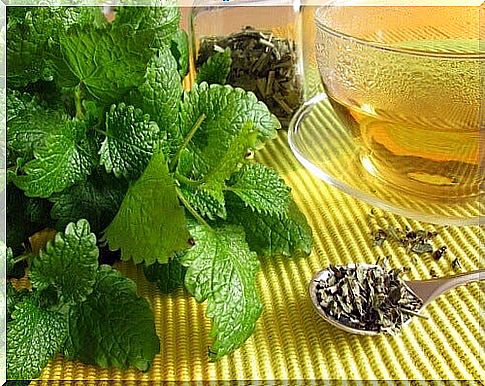
Ingredients
- 1 tablespoon of dried lemon balm leaves
- 1 cup of water
A method of preparing
- Bring water to a boil. When it boils, add the dried lemon balm leaves.
- Then reduce the heat and cook for a few more minutes.
- After a few minutes, remove from heat.
- Drink when it has cooled down a little.
When to drink
- Drink one cup of this tea for breakfast and one in the afternoon.
For better results, you should drink these teas as a supplement to your healthy diet. Then you will be in control of the fats, sugars and carbohydrates you eat. You should avoid drinking alcohol and consuming substances like caffeine and nicotine at the same time.

